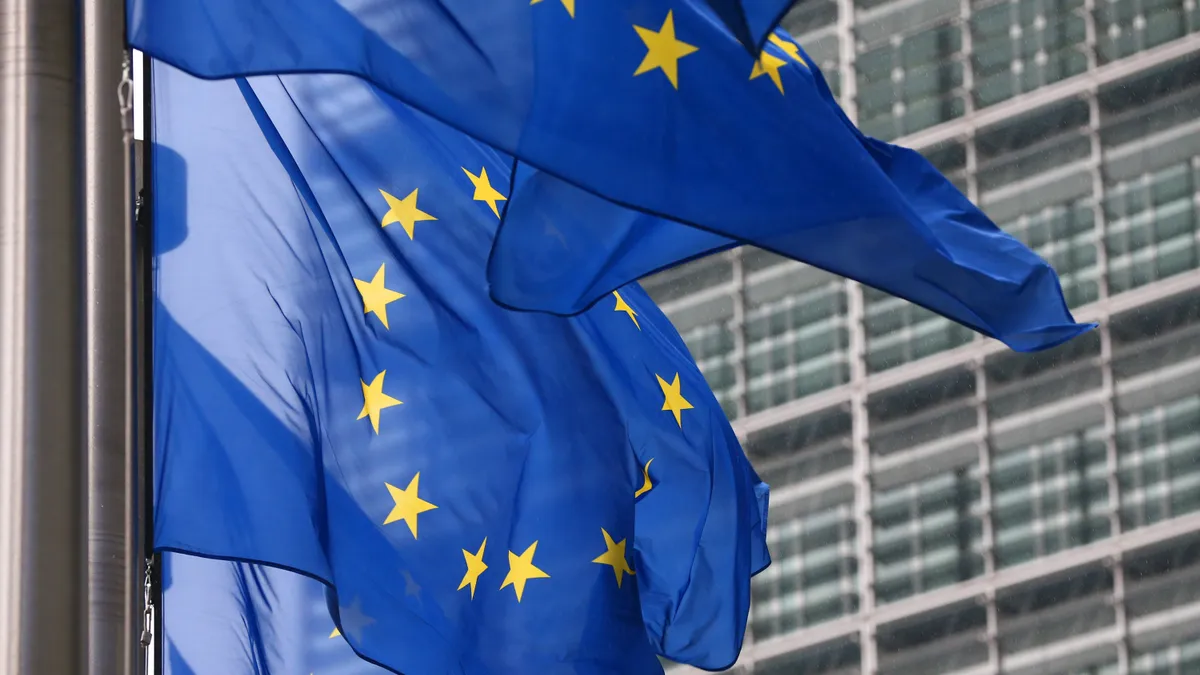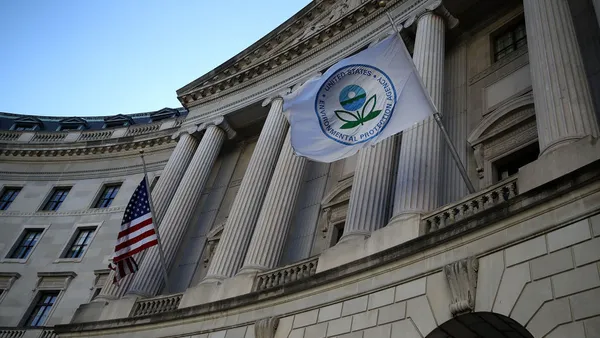Dive Brief:
- The European Union’s financial markets regulator said greenwashing controversies do not lead to reduced future earnings for companies operating in the bloc.
- The European Securities and Markets Authority noted over 600 ESG controversies with 153 companies from January 2020 to December 2021, with a few multi-offenders within three key sectors: oil and gas, banking and financial services, and food and beverage. The regulator calculated impact by comparing their stock returns and other financial valuation to other companies.
- ESMA said its overall findings suggest that “investors and markets did not pay close attention to greenwashing-related controversies in 2020 and 2021," despite anecdotes of market reactions, according to its article published Dec. 19.
Dive Insight:
ESMA concluded there is a need for stronger regulations to enforce ESG pledges and goals in the report by Senior Economist Julien Mazzacurati and fellow risk analysts Sara Balitzky and Federico Piazza.
"This underscores the importance of clear policy guidance by regulators and efforts by supervisors to ensure the credibility of sustainability-related claims,” the analysts wrote.
ESMA sought to prove whether greenwashing controversies reduce future earnings, but any trends became statistically non-significant, "confirming that greenwashing controversies do not appear to be value-relevant for firms during the period analyzed."
The study compared price-to-earnings ratios of companies, and determined no clear correlation between firms heavily involved in greenwashing controversies and other companies. However, the trend "may well change" given the "growing levels of public scrutiny on sustainability-related claims," the article concluded.
While the report focused on ESG controversies from 2020 and 2021, “greenwashing-related controversies continued to increase globally in 2022, including in Europe,” Mazzacurati said, noting data provider RepRisk published a report in October which found increased frequency and severity of greenwashing over the past two years.
Half of the greenwashing controversies in the sample originated from non-government organizations, which are very active in the sustainable investment sphere and "are perceived as a credible source of information." And more than a quarter of the controversies included at least one legal keyword, to identify political legal risks. But even with potential legal risk, there was no clear impact from greenwashing allegations on stock returns.
"Our findings highlight the absence of an effective market-based mechanism to help prevent potential greenwashing behavior," the report said. One possible explanation is that stock markets might react positively to new business ventures in the oil and gas sector, although those announcements would spark greenwashing allegations, according to the report. Other studies have similarly highlighted that the markets do not currently punish firms for misrepresenting ESG efforts. In 2022, the Journal of Management Studies published a study tracking over 7,000 firms across 15 years went as far as dubbing a “boys will be boys” phenomenon: an “expectation from consumers that stigmatized firms lack integrity and, by consequence, are given greater leeway to greenwash.” Companies would therefore be protected from consumer backlash against greenwashing due to organizational stigma.
As the EU’s financial markets regulator and supervisor, ESMA continues to evaluate policy and regulatory efforts to reduce greenwashing in its markets. The European Commission requested input from ESMA on greenwashing in 2022, and ESMA published a progress report in May identifying preliminary remediation actions for unsubstantiated ESG claims.
That report also called for further transparency on ESG data methodologies and the establishment of a uniform and reliable labeling process for sustainable financial products. The EU Council reached an agreement on regulating the ESG rating market Dec. 20, which will require all ratings providers looking to operate in the bloc to register with ESMA. A final greenwashing report has an anticipated May 2024 release.
In the United States, a similar effort is underway: the Federal Trade Commission is expected to publish new guidelines in the spring on greenwashing which had not been renewed in more than a decade. Additionally, the Securities and Exchange Commission updated the Investment Company Act’s Names Rule in the fall to require companies to invest 80% of their portfolios in funds that align with their names.













